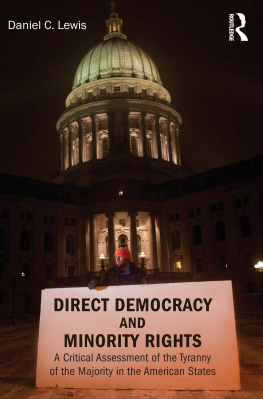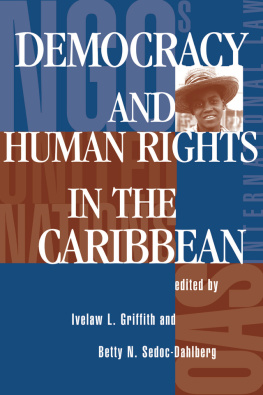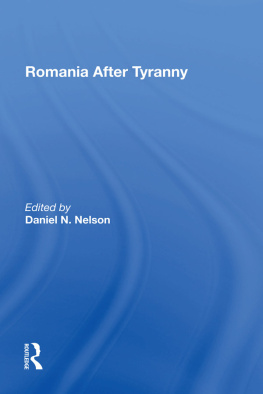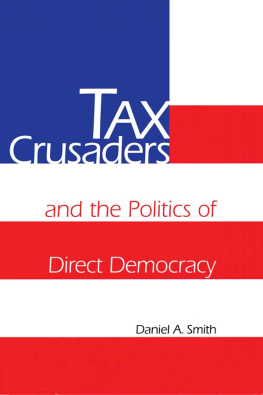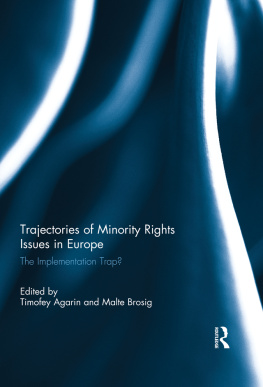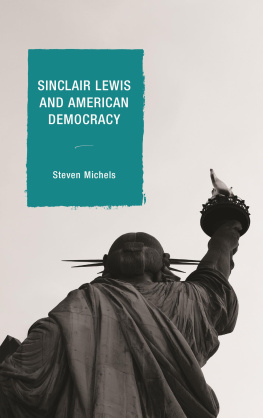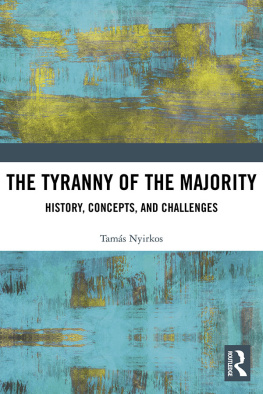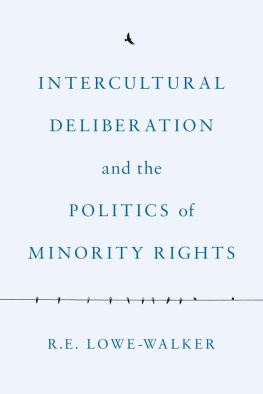Direct Democracy and Minority Rights
This book conclusively demonstrates that direct democracyinstitutions like the ballot initiative and the referendumendangers the rights of minorities and perpetuates a tyranny of the majority. While advocates of direct democracy claim that these institutions protect citizens from corrupt lawmakers beholden to special interests, Daniel Lewis thorough investigation shows how such mass participation exposes minority groups to negative policy outcomes favored by only a slim majority of voters.
While research has been presented that supports both sides of the debate, the existing literature has yet to produce consistent and compelling evidence in favor of one side or the other. This book undertakes a comprehensive examination of the tyranny of the majority critique of direct democracy by examining a host of contemporary American state policies that affect the rights of a variety of minority groups. By assessing the impact of direct democracy on both ballot measures and traditional legislation, the book provides a more complete picture of how citizen legislative institutions can affect minority rights, covering a myriad of contemporary minority rights issues, including same-sex marriage, affirmative action, racial profiling, and anti-discrimination laws.
The book is unique in its approach and scope, making it compelling for scholars interested in direct democracy, state politics, minority politics, and electoral institutions, as well as American politics generally.
Daniel C. Lewis is an Assistant Professor of Political Science at the University of New Orleans. His research examines state political institutions and public policy. His work on direct democracy, legislative term limits, policy diffusion, LGBT politics, and federalism has been published in a number of leading political science journals.
Controversies in Electoral Democracy and Representation
Matthew J. Streb, Series Editor
The Routledge series Controversies in Electoral Democracy and Representation presents cutting-edge scholarship and innovative thinking on a broad range of issues relating to democratic practice and theory. An electoral democracy, to be effective, must show a strong relationship between representation and a fair, open election process. Designed to foster debate and challenge assumptions about how elections and democratic representation should work, titles in the series present a strong but fair argument on topics related to elections, voting behavior, party and media involvement, representation, and democratic theory.
Titles in the series:
Rethinking American Electoral Democracy
Matthew J. Streb
Redistricting and Representation: Why Competitive Elections Are Bad for America
Thomas L. Brunell
Fault Lines: Why the Republicans Lost Congress
Edited by Jeffery J. Mondak and Dona-Gene Mitchell
In Defense of Judicial Elections
Chris W. Bonneau and Melinda Gann Hall
Congressional Representation and Constituents: The Case for Increasing the U.S. House of Representatives
Brian Frederick
The Imperfect Primary: Oddities, Biases, and Strengths of U.S. Presidential Nomination Politics
Barbara Norrander
Rethinking American Electoral Democracy , 2nd Edition
Matthew J. Streb
Third Party Blues: The Truth and Consequences of Two Party Dominance
Scot Schraufnagel
Helping America Vote: The Limits of Election Reform
Martha Kropf and David C. Kimball
In Defense of Politicians: The Expectations Trap and Its Threat to Democracy
Stephen K. Medvic
Direct Democracy and Minority Rights
A Critical Assessment of the Tyranny of the Majority in the American States
Daniel C. Lewis
First published 2013
by Routledge
711 Third Avenue, New York, NY 10017
Simultaneously published in the UK
by Routledge
2 Park Square, Milton Park, Abingdon, Oxon OX14 4RN
Routledge is an imprint of the Taylor & Francis Group, an informa business
2013 Taylor & Francis
The right of Daniel C. Lewis to be identified as author of this work has been asserted by him/her in accordance with sections 77 and 78 of the Copyright, Designs and Patents Act 1988.
All rights reserved. No part of this book may be reprinted or reproduced or utilized in any form or by any electronic, mechanical, or other means, now known or hereafter invented, including photocopying and recording, or in any information storage or retrieval system, without permission in writing from the publishers.
Trademark notice: Product or corporate names may be trademarks or registered trademarks, and are used only for identification and explanation without intent to infringe.
Library of Congress Cataloging in Publication Data
Lewis, Daniel C.
Direct democracy and minority rights: a critical assessment of the tyranny of the majority in the American states/Daniel C. Lewis.
p. cm.(Controversies in electoral democracy and representation)
Includes bibliographical references and index.
1. Direct democracyUnited StatesStates. 2. Representative government and representationUnited StatesStates. 3. Majorities. 4. MinoritiesCivil rightsUnited StatesStates. I. Title.
JF494.L48 2012
323.173dc23
2012018205
ISBN: 9780415537438 (hbk)
ISBN: 9780415537445 (pbk)
ISBN: 9780203109342 (ebk)
Typeset in Bembo and Stone Sans
by Florence Production Ltd, Stoodleigh, Devon, UK
To Chief and Her Majesty
... a real writer and his muse.
Contents
This book is the result of over seven years of study on the topic of direct democracy and minority rights. Over this time period, I have received invaluable personal and professional support from numerous individuals. The project began at Michigan State University under the able tutelage of Saundra Schneider. I could not have completed the project without her support and guidance. I also owe many thanks to William Jacoby, Richard Hula, Elisabeth Gerber, Belinda Davis, and Frederick Wood.
Portions of this book have been presented at a variety of professional conferences, where I have been very fortunate to get helpful feedback from my fellow state politics scholars. In particular, I owe a debt of gratitude to Daniel Smith, Justin Phillips, Joshua Dyck, Todd Donovan, and Thomas Carsey for their helpful comments and suggestions. Id also like to thank the organizers and participants of the annual State Politics and Policy conference (especially Christopher Z. Mooney), which has been a critical resource for my academic development.
In the past four years, Ive worked at the Department of Political Science at the University of New Orleans. For their helpful advice in further advancing the project, Id like to thank Christine Day, Matthew Jacobsmeier, Richard Frank, and Elizabeth Stein. Id also like to thank Michael Huelshoff, Robert Montjoy, Salmon Shomade, Edward Chervenak, and Denise Strong for their support and collegiality.
Earlier versions of the analyses of same-sex marriage bans appeared in, Direct Democracy and Minority Rights: Same-Sex Marriage Bans in the U.S. States, published in Social Science Quarterly (2011). A form of was published in State Politics and Policy Quarterly (2011) as Bypassing the Representational Filter? Minority Rights Policies under Direct Democracy Institutions in the U.S. States. I thank editors Robert Lineberry, Ronald Keith Gaddie, Kelly Damphousse, Thad

